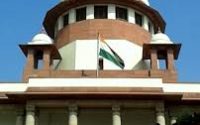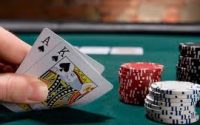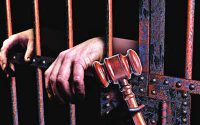$100 Website Offer
Get your personal website + domain for just $100.
Limited Time Offer!
Claim Your Website NowLawyers refusing legal aid to youth for cheering Pakistan belittles profession, violates code of ethics
Source:- firstpost.com
Last week, we learnt that two bar associations have passed resolutions calling upon their members to refuse to appear for people who have been charged with criminal offences as a result of cheering or posting congratulatory messages after the Pakistani cricket team defeated India in the ICC Champions Trophy Final.
While the Burhanpur District Bar Association reportedly passed a resolution on 22 June, asking their members to not represent the accused, the Laskar Bar Association passed a unanimous resolution in the same vein three days later on 25 June, 2017.
Last year, we witnessed Indian lawyers beating up the accused in the JNU sedition case as they were arraigned in court. A few years before that the Saket Bar Association refused to take the brief of the 2012 Delhi gangrape accused and before that, we saw bar associations in Mumbai refuse to take up the brief of Pakistani national Ajmal Kasab, who was one of the men who carried out the 2008 Mumbai terror attacks.
The Indian court system at times seems like it has been taken right out of a book and brought to life. Dusty old buildings lie full of case files dating from time immemorial. The power often goes out and when it rains, the roofs tend to be leaky. There are posh new court buildings that are now coming up in most of the cities, but for many, whether a litigant or an accused, the place looks pretty much the same. You’ve got a judge who everyone still calls M’Lord and then there is the most quintessential character of all — the Indian lawyer.
Heir to a long tradition that goes back hundreds of years, it is the Indian Lawyer who sits in these dusty old rooms and does the job few truly want to do — providing people access to justice. It is this creature that helps a litigant or an accused navigate the Kafkaesque system of justice we have inherited from our former colonial masters. In their black coats and white bands, on most days, they are the last line of defence between individual liberty and a long stint in a chokey
Our lawyers once were the envy of the world. A true example of upstanding obedience to their code of ethics. Every person deserved one and had the right to one. Long before it was codified in the Constitution as the Right to Legal Aid, this cannon existed in their code of ethics. Often it is known as the cab-rank rule. A lawyer is a taxi driver. It is their job to take whoever is willing to pay the fare from one point to another so long as the journey is lawful, and like most taxi drivers, members of the Indian bar are raised in a tradition that asks them not to concern themselves with who their passenger is. But recent events show that this long tradition of fearless independence in the practice of their profession is now under decline. Lawyers are refusing to take particular briefs all because they consider some crimes to be anti-national.
This charge is apparently enough to whitewash away the oaths they took while they donned their gowns and put on their bands. To obey the canon of legal ethics that states that every accused has a right to be defended by a pleader of their choice. A lawyer cannot reject a brief solely because their opinions are in conflict with those of the accused. A lawyer is not merely any other member of society. This creature which figures through history is an officer of the court. They don’t do their jobs like it’s another vocation. They do their jobs because the administration of justice calls them to do their duty.
The resolutions passed by the Burhanpur District Bar Association and the Laskar Advocates Association are a stain on the long tradition of the Indian bar, whose members have take pride in taking briefs that were against the popular government sentiment of the day — be it Jawaharlal Nehru, Bhulabhai Desai, MK Gandhi, Nani Palkhivala and many other luminaries of the bar. It was this tradition of taking up an unpopular brief and delivering access to justice that at the end of the day defined the Indian bar.
But the Bar Council of India has been sitting mute and at most offering a quiet comment as resolutions such as those from the Laskar and Burhanpur bar associations continue to be passed. Even though it goes against the fundamental moral code that makes a lawyer. This degeneration of legal ethics over the last few years, perhaps, tells us that the last line of defence against an era of tyranny is beginning to show its cracks.
In the case of AS Mohammed Rafi vs State of Tamil Nadu (AIR 2011 SC 308 ), the Supreme Court observed:
“In our opinion, such resolutions are wholly illegal, against all traditions of the bar, and against professional ethics. Every person, however, wicked, depraved, vile, degenerate, perverted, loathsome, execrable, vicious or repulsive he may be regarded by society, has a right to be defended in a court of law and correspondingly it is the duty of the lawyer to defend him.”
Going on to state.
“Professional ethics requires that a lawyer cannot refuse a brief, provided a client is willing to pay his fee, and the lawyer is not otherwise engaged. Hence, the action of any bar association in passing such a resolution that none of its members will appear for a particular accused, whether on the ground that he is a policeman or on the ground that he is a suspected terrorist, rapist, mass murderer, etc, is against all norms of the Constitution, the statute and professional ethics. It is against the great traditions of the bar which has always stood up for defending persons accused for a crime. Such a resolution is, in fact, a disgrace to the legal community. We declare that all such resolutions of bar associations in India are null and void and the right-minded lawyers should ignore and defy such resolutions if they want democracy and rule of law to be upheld in this country. It is the duty of a lawyer to defend no matter what the consequences, and a lawyer who refuses to do so is not following the message of the Gita.”
Without lawyers, courts cannot come to the right conclusion, an accused does not get a fair defence, and the administration of justice comes to a grinding halt. The Bar Council of India needs to initiate mass disciplinary action against these two associations for these resolutions. Their members are undeserving of wearing the bands that their predecessors wore. Their members are a blot in the history of the Indian bar and a stain on the conscience of the profession everywhere.



